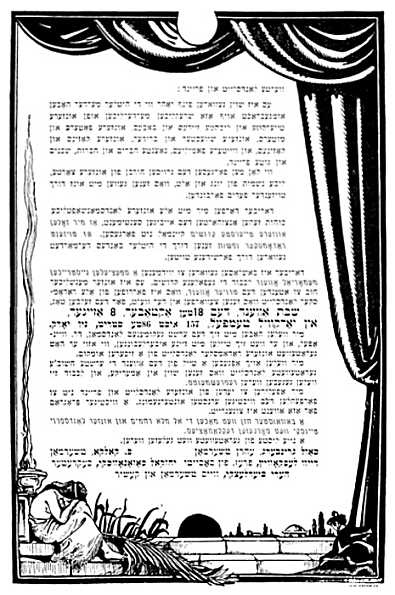 |
|
Photocopy of the appeal for the 5th anniversary
after the liquidation of the Radomsker Ghetto (1946) |
|
||||||||||
| Wm. Oberman |
|
A Memorial Evening
Dedicated to the Martyrs from our
Home City Noworadomsk.
 |
|
Photocopy of the appeal for the 5th anniversary
after the liquidation of the Radomsker Ghetto (1946) |
|
||||||||||
| Wm. Oberman |
Yehezkel [Harry] Pacanowski, of blessed memory
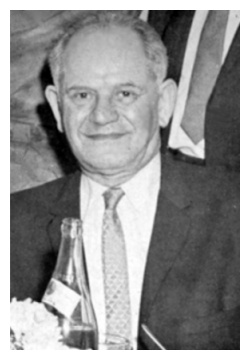
Yehezkel [Harry] Pacanowski, the only son of his parents Yitzhak and Feigele,
inherited from them a quietness and gentleness and a constant readiness to help
others.
He was a child of another generation that exemplified the idealistic traits of communal, social and cultural life, a generation to whom the concepts of selfishness and cruelty were foreign. Therefore, his heart bled so when he witnessed how much brutality was committed against mankind, in general, and in relation to his Jewish people, in particular.
Immediately after the First World War, when Yehezkel Pacanowski discovered the problems of Workers' Zionism, he decided to leave his parents and family and his beloved home and travel to Eretz Yisroel. No work was too difficult for him; he never complained about the difficult living conditions in Eretz Yisroel. Personal reasons propelled him to travel temporarily to America (New York) and Yehezkel Pacanowski remained in America, building a family there and dedicating his whole energy and culture and knowledge to the organization of the Radomsker landsleit in all its areas of activity.
For more than twenty years he remained an active worker in the society and its branches and relief work. As secretary he was the living nerve [center] of the work, organizing not only the wider activities of the organization in America, but particularly the charitable work for his birthplace Radomsk. In the period of the Second World War, a greater burden lay on him; he [was] devoted to his charitable work as secretary, day and night, in the literal sense. He read the hundreds of letters from our refugees and immediately answered all of them. Together with other leaders, he packed thousands of packages of food and clothing and sent them to many parts of the world.
Yehezkel Pacanowski took a very large part in the preparation of the Yizkor Book that the landsleit in Israel undertook to publish. He came to see with his own eyes the surviving landsleit who emigrated to the Land of Israel and their way of life. In 1961 he visited Israel with his wife and acquainted himself with all of the problems [of the landsleit], and particularly with the preparation of the Yizkor Book.
Returning home, he put more energy into his work, paying no attention to his
weakened health, until the good heart of this rare, dear person stopped forever
in September 1963.
[Page 512]
Shlomoh (Sol) Greenberg, of blessed memory
This is the place for a special remembrance of Sol Greenberg, of blessed memory, the 'man of the people' whose only purpose in life was to help needy people. He always helped both Jews and non-Jews with the same readiness. But his dedication to his town of birth, Radomsk, had no boundaries. He didn't have millions, only a particularly warm heart that never counted what others gave, but was always ready to donate still more.
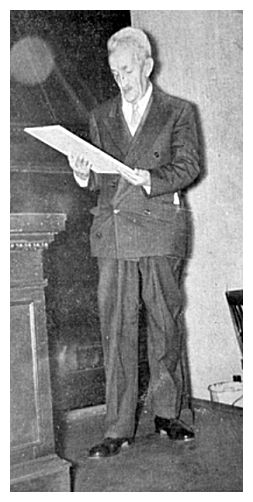
Shlomoh (Sol) Greenberg reading the certificate from K.K.L. (the Jewish
National Fund) about the planting in his name of 18 (chai) trees
through Radomsker Irgun in Israel.
In 1958 his archive was sent to Israel and is found in a special room that carries his name (the room is a part of the house on Khulda 9 in Tel Aviv that serves as the home of the Organization of Former Radomskers). The house was bought for $6000, which the society sent, and was furnished with an extra sum that was sent from the $1000 that Sol Greenberg, of blessed memory, had left in his will.
There is left to us his greeting for the 40th anniversary (1939) of the Radomsker Society, in which he says:
'At this time I send my heartiest greeting to my poor brothers and sisters in my city of birth, Radomsk. It is my wish [to help them], and I have therefore reserved $1000 which will be divided: $400 for [housing for the poor], $400 for interest-free loans, and $200 for 'Shabbos guests' in Radomsk.'
As money could not then be sent to Radomsk, the sum was sent to Eretz Yisroel.
In 1945 he gave the first $5000 for the building of apartments for the Radomsker concentration camp survivors in Israel.
He once described his charitable activities in New York this way:
'Jewish men and women, who come to me in my home or sit down next to me in the park, would surely be unhappy if they had to go through [the written applications] of the organized social institutions of which I am a member (in more than 40 of them). My friends who come to me know another way and I must thank G-d that their way brings them directly to me… Money? Why do I need it? G-d gives it to me to hold a while in order to give it to others… I don't ask too much about the [reason for the] need. When people come to me and ask for help no one should, G-d forbid, go away with empty hands. And I have so much nachis (pleasure) from this that can't be bought for a million dollars.'
With particular affection, he supported the campaigns of Eretz Yisroel as a consistent donor to the Palestine Foundation Fund, the Jewish National Fund and other fund drives. He was also a dear and devoted friend of the trade union campaign for the Histadrut (for one such campaign he gave an antique object that was auctioned for ten thousand dollars). His rich archive of various documents, addresses and thank you letters (even from President Roosevelt) requires a special study that would bring out the personality of greater Jewry.
On the 25th of January 1952 he breathed out his noble soul.
His daughter and son-in-law (Altman} continue the charitable work of Sol
(Shlomoh) Greenberg, of blessed memory, upholding the tradition of their
dear father.
[Page 513]
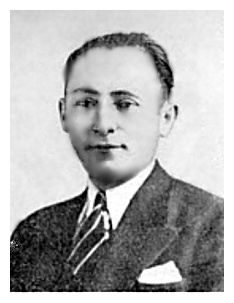
Max Szapiro, the son of Mendel and Mashele, was born in Radomsk (November
1892). He came to America in 1913, and became a member of the Society in 1921.
Max Szapiro [could not rest because he was always concerned] with helping a comrade or friend. His sacred life's work was to seek out all who were in need of assistance, but he himself did not have the means [to provide help]. He turned to comrades and friends who gave him the resources to enable him to carry out his ideas. In this way, Brother Shlomoh Greenberg gladly covered all requests from Motele Szapiro to help the needy landsleit and others.
In the years 1925 through 1930 Szapiro suffered from a serious illness. He recovered and took over the mission of the hospital [committee] of the Radomsker Society and this gave him the opportunity to fulfill the mitzvah (good deed) of visiting the sick in the hospital.
In 1951, death cut short the life of a particularly fine person and brother
– Max Szapiro, of blessed memory.
[Page 514]
Shlomoh Epsztein came to America from Radomsk on the 16th of May 1921. He immediately joined the Radomsker Society and very quickly became well known for his active work on behalf of the poor brothers and sisters from our birthplace. His whole life was dedicated to this work, which was literally sacred to him and, therefore, he truly earned the name of a dear and devoted brother and member of the society.
He concerned himself with arranging the creation of an interest-free loan office in Radomsk, which granted interest-free loans to pressured businessmen, needy craftsmen and ordinary poor people. He was involved in arranging [for the distribution of] matzohs during Passover, with giving medical help to poor women in childbirth and the sick, and warmly responded to all requests from individuals. And it needs to be emphasized that in collecting the money for the above-mentioned purposes, Shlomoh Epsztein worked very hard and put his heart and soul into his work (he collected and sent to Radomsk thousands of dollars).
During the period of the Second World War and for ten years after, he was the chairman of 'Relief.' In this period, he doubled and tripled his efforts on behalf of landsmanshaft work. He collected and brought help to every Radomsker Jew who showed a trace of life during the war and, later, to all of the survivors of Hitler's inferno wherever they were found.
After this when it was clear that there were no longer any Jewish souls in Radomsk and that the greatest number of the survivors had settled in Israel, Shlomoh Epsztein concentrated his work around the needs and requirements of the Radomsker immigrants in Israel. This last chapter of his work for the Radomsker landsmanshaft organization in Israel was full of care, friendship, devotion and many good deeds in all areas of communal work that was done through the organization in Israel.
In recognition of his untiring landsmanshaft work in and outside of America,
he was elected as president of the Radomsker Society and vice president and
chairman of the Relief Fund. After his death, the Radomsker landsmanshaft
institutions in America decided to immortalize his name through the establishment
of a loan office in Israel bearing his name at the landsmanshaftorganization.
He died on the 7th of May 1952.
[Page 515]
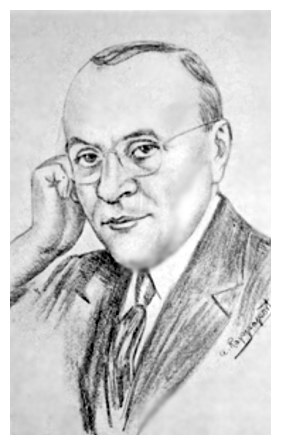
He believed with many, many others, that this great movement for freedom
would dispossess the evils of humanity in general and of our Jewish
people in particular.
He came to America before the First World War, to the land of great freedom and opportunities. With his learning and knowledge of the culture and community, he was devoted, first of all, to his landsleit, in the wide areas of their organizational, cultural, communal and social activities. After the dark tragedy of our people, he excelled in organizing the great aid work that the Radomsker landsleit in America undertook on behalf of their surviving brothers.
His deep humanity and feeling for freedom inspired him to be one of the founders of assistance for political victims in reactionary Poland during the 1930's (The Patronat).
His last trip in 1962 was symbolic, accompanied by his best friend – his
wife. He visited the Land of Israel and saw the marvelous rise of the nation.
Later he visited Europe and was in Poland and in Radomsk. He saw with his own
eyes what had happened to the once great watchword of freedom in which he had
so deeply believed. His warm Jewish heart apparently could not carry the pain
of the personal and national tragedy. Very shortly after his return to America,
the delicate heart of Moishe (Morris) Szwarc ceased beating. He died in
Miami, Florida on the 15th of October 1963.
[Page 516]
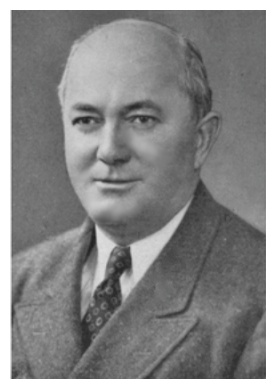
Pinye Kalka, a dear person, a dear soul, an unassuming worker, was always ready
to serve every friend, everyone close to him, every working person. He always
dreamed about a more beautiful, brighter and better future. From time to time
he took trips, which brought out the contrast of the dark pictures of the old
home in Poland and the bright rising sunbeams of the new Israeli life in the
Land of Israel.
He left Radomsk for America in 1925. But the frightening pace of American life, particularly in the giant city of New York, the difficult struggle to 'make a living,' the rush in the shop and the 'hurry up' – all of this had no power over the dear child from Nowo-Radomsk, the devoted landsman and communal worker.
Pinye Kalka would become excited with relief work, take it on with enthusiasm and get others enthused for this work. The 'dreamer of the Nowo-Radomsk Landsmanshaft' was for many years the 'Relief' chairman. Thanks to him the Passover concerts for 'Relief' acquired a [positive] reputation with their great success. So, too, the Yizkor evenings or the evenings for the Land of Israel.
Pinye Kalka was very enthusiastic with his communal zest for different social and general Jewish institutions. In addition, he never forgot and never blurred [the fact] that he came from a toiling family from Radomsk and that he himself always belonged to the mass of toilers and craftsmen. So in America he settled around to his way of communal and cultural work, with which he was already involved in his youth in his birthplace Radomsk.
Pinye Kalka was the co-editor of 'Nowo-Radomsker Almanac' together with Moishe Szwarc – the complete Radomsker.
At the beginning of 1956 he had the privilege of again being in Israel, and his joy had no end when he met his relatives and old and new friends.
He breathed out his soul in the month of October 1956 in New York.
Issy Alpert, of blessed memory
We regret the loss of our member Issy Alpert. We have lost a person who warmly
responded to our collections with significant sums of money. [He was] a
managing member of Alpert and Meyers.
[Page 517]
by Herszl Epsztein
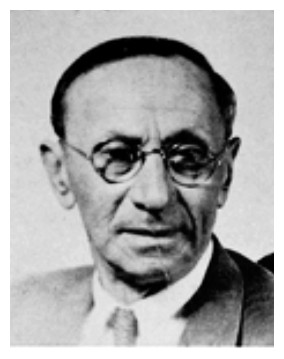 |
| Herszl Epsztein |
In 1917, our family was the first Radomsker family to settle in Los Angeles. In
1922, several [Radomsker] families joined us. Later in the early 1930's the
same thing occurred (the majority of those who came were from New York and
Chicago). In 1935, we already numbered fifteen Radomsker families, with almost
all living in the same neighborhood. We were very close to each other, like
members of one family. Five families were located in San Francisco (450 miles
from Los Angeles), and we maintained contact with them through frequent
reciprocal visits and we helped each other.
On the 16th of November 1944, a group of landsleit (Berliner, Borensztein, Davidson, Epsztein, Fink and Kugel) gathered together in the home of Gitl and Fiszel Gliksman. [They] decided to create a Nowo-Radomsker Aid Organization, which was joined by all seventeen Radomsker families who then found themselves in Los Angeles. Although we did not then have an exact plan of action, we all felt that it was our sacred duty to be organized in order to help our brothers in Radomsk who would perhaps survive the Second World War.
We would all gather together twice a month. We would chat and remember the old home and collect money for aid and support. When the war ended, and the call came to us for help and support, we immediately extended our brotherly hand. We sent packages of food, clothing and medicines to our landsleit survivors in France, Germany, Poland, Belgium and Israel. Later we began to support the general landsmanschaft work of the Organization of Former Radomskers in Israel in all areas of their activities.
Through all the years we actively cooperated in all areas of assistance which were undertaken through the landsmanschaft organization in New York and maintained contact with the leaders there. In the years 1946 through 1948, we were visited by the following distinguished landsleit and activists from New York: Moishe Szwarc, Sarah Hamer-Jakhlin, Mordekhai Szpira and Yecheskiel Rudnicki. We welcomed them with our hearts, and with respect, talked about common problems, and looked for new ways to widen the relationship with the landsmanschaft.
Sadly, in 1958, our activities ended, because in the interim the [number of] landsmanschaft families dwindled due to the death of our dear members and friends. We lost the following members of our Radomsker family in Los Angeles: Ofman and wife, Ahron Bugajsky, Sarah Birncweig, Moishe Berliner, and wife, Fiszel Gliksman, J. Kugel, Efraim Grajcer and wife, Solomon Diner and wife, Mendel Davidson and wife, Kaminski, Yosel Rozenbaum. May their souls be bound up in the bundle of life!
|
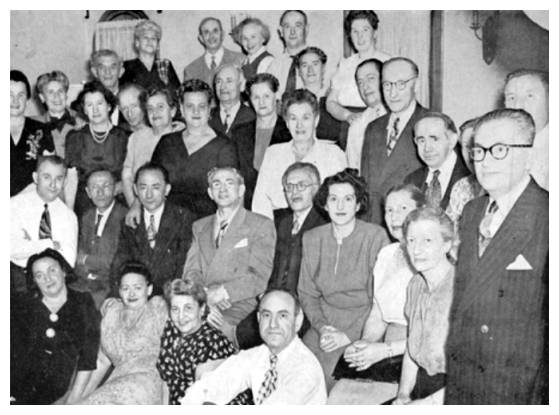 |
| The Nowo-Radomsker Relief Committee in Los Angeles – California (the 16th of April 1948) |
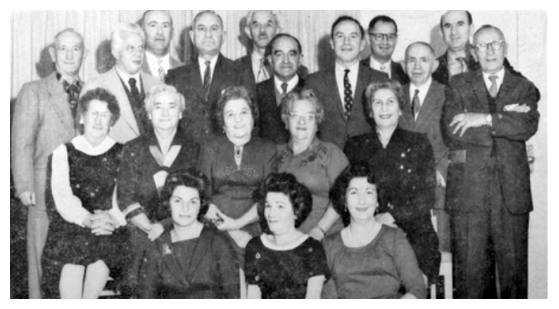 |
| The Nowo-Radomsker Landsleit [people from the same town] in Los Angeles – California (1961) |
by Israel Merkin
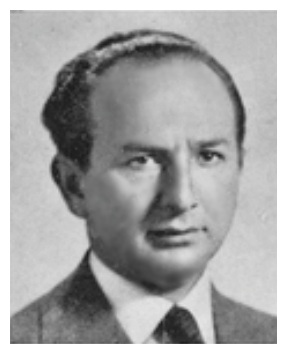 |
| Israel Merkin |
The following lines do not pretend to be the full history or an exhaustive
account of the Radomsker landsleit in Argentina. Despite my
best intentions, I was unsuccessful in gathering more than scraps of
information, which I bring here, partly as a result of my direct experience
and partly relying on information which landsleit have given me.
It is an old Jewish custom to remember, first of all, those who, unfortunately, are no longer among the living. Here let us remember the names of Buchshreiber, Abraham-Yitzhak Tiberg, Abraham and Sarah-Feige Gelbard, Hirsz-Ber Broiner, Meite Rozensztein, Moishe Tiberg, Sarah and Freide Eizen, Berl Haper, Shlomoh Feldberg. May their souls be bound up in the bundle of life!
First [here are some words] about the group of landsleit who were cast away in the northern Argentine province of Tukuman. The first Radomsker who settled there was Moishe Tiberg (as reported by his relatives). In 1906 he came here from London with a group of Jewish colonists. But he didn't become a colonist; he became a peddler. Later he founded a business firm. Little by little he became a naturalized [citizen] and a short time later he brought over Fiszel Krakowski and his wife Chanele. After a short time the [following] arrived here: Wolf Tiberg, Anjie Keselman, Tzirele Tiberg, Abraham Gelbard with his wife and children, Yosl, Leibl, Blume, Zisman, and Regina. Then later came Berl Ickowicz and his wife Szandele Tiberg, Malka Rozensztein, Meite Rozensztein, Abraham Rozenblat, Mindl Shreiber, Beile Shreiber, and Israel Yakubowicz. This group formed the nucleus of our Radomsker landsleit, which remained devoted to the cultural tradition of our birthplace.
Despite the difficult conditions, which once made it necessary to struggle for one's existence, they found time and strength to give to cultural work. Together with a group of local residents, they created a cultural federation with a fine drama club that earned the well-deserved praise of the local press.
After the First World War sisters Helina and Fele Gelbard, Celina Keselman and others came and settled in Tukuman. The Radomsker family in Tukuman grew, and as the [settlement developed], they became more involved in their communal and cultural activities.
In Buenos Aires the situation developed in a much different way, because the people there were much different.
The first of our landsleit in Buenos Aires was Buchshreiber (his father was called 'Koindl'), a hatmaker by trade. He came here in 1912 after Sarah Jakhlin-Hamer had visited Buenos Aires. In spite of his difficult economic position he dedicated all of his free time to the 'Jewish Rationalist Community' in Buenos Aires, where he was secretary for many years.
In 1924 Abraham Merkin came to Buenos Aires. He was later able to bring over a large number of his family: Joshua Merkin, R. Merkin, Israel Merkin and B. Merkin, E. Winter, etc. Jehiel Eizen, Sarah Eizen and Weisenberg were then living in a near suburb of Buenos Aires.
Before the outbreak of the Second World War, Lewi Weinman arrived with his son Israel Weinman, who quickly was naturalized and earned for himself a very good economic position.
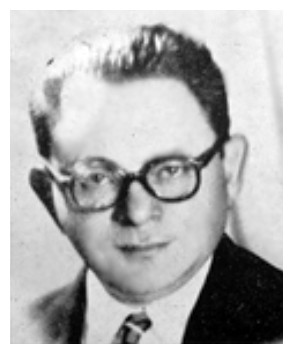 |
| Shlomoh Feldberg |
At the same time Shlomoh Feldberg also arrived in Buenos Aires.
[Page 520]
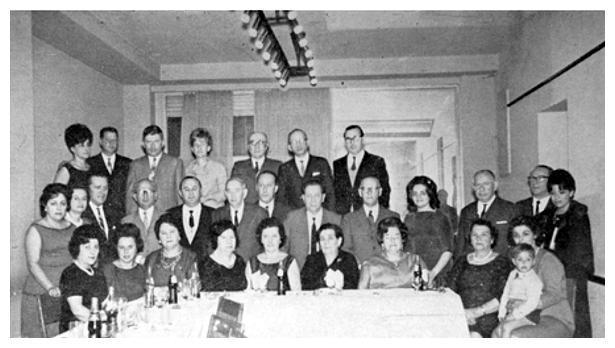 |
| Radomsker “Landsleit” in Buenos Aires (1963) |
| Sitting from the right: Celia Merkin-Morgensztern, Genia Keselman, Ruchel Merkin, Chana Krakowski,
Anjie Keselman, Tzirele Tiberg, Etke Keselman, Cesze Eisen, Celina Keselman
Standing in the first row: Mrs. Gelbard, Naszielski, Fani Merkin-Stamler, Aba Merkin, Wolf Tiberg,
The last row: Yitzhak Weinman, Szaje Merkin, Fiszel Krakowski, Halinka Faris and husband
Moskowicz,
|
He was always ready to assist the needy and the unfortunate among our people,
and particularly those close to him. Immediately after arriving here, he
created an industrial enterprise in which he was deeply involved and
which earned him outstanding economic success. But the frightening
news from the old home wouldn't let him rest; his great concern for those
close to him tormented him. He had come here from Germany,
from where he had fled as if from a fire. When the war ended and hands were
stretched out to him from all sides, he traveled to Paraguay, and thanks to his
connections, he became an entry beacon for thirty families whom he called his
'children.' Among the group that arrived in Buenos Aires were the Radomsker
landsleit Halinka Faris and Yakub Szlamkowicz. Thanks to Shlomoh
Feldberg's intervention, the brothers Eidl and Alek Keselman, Tzesze Eizen,
Mrs. Rubin and Gute Neikron, Yitzhak Weinman, Salcia Zaydman and Simcha
Szatitski arrived later.
Shlomoh Feldberg's history unwinds in a very strange way. At that time, he had such good connections and esteem that he was appointed as Consul of Paraguay. This, however, did not last long because circumstances forced him to leave his home and travel to Paris. He lived there for two years and returned home a broken man; his enterprise, meanwhile, had [collapsed], and he died a lonely and forlorn man.
We lived through many exalted moments during the visit of Sarah Hamer-Jakhlin. With the support of the Jewish newspaper, she enjoyed the admiration and esteem of the local Jewish community and, most particularly, of the local Radomsker landsleit. The writer of these lines was assigned the honor of greeting her in the name of the Radomskers at a reception that the local cultural institutions arranged in her honor. We also had the pleasure of entertaining her in my home in the presence of a large number of Radomskers and specially invited cultural activists. This was an evening that will long remain engraved in the memories of all of the [guests]; it was a homey Radomsker and cultural gathering, during which we expressed our appreciation and warm relationship with our daughter [of Radomsk], the writer Sarah Hamer-Jakhlin. (from F. Z. A.)
In conclusion, we want to pause here to mention another landsman
who occupies a very special place in Argentina: Yosl Gelbard, the son of
Abraham and Sarah-Feige Gelbard. When he arrived in Argentina he was no more
than nine or ten years old, and already in his youth he was occupied with what
at that time everyone was occupied with – he was a peddler, he traded and
in that way he also learned. Through the years he emerged as a distinguished
personality in official governing circles. Yosl Gelbard was rapidly transformed
into a specialist on economic and financial affairs, and in the previous
government was a 'right hand' of the then ruler of the country.
[Page 521]
by Berl Dudkewicz
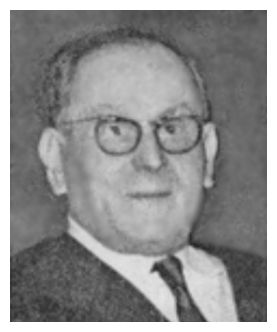 |
| Berl Dudkewicz |
The first large group of emigrants (mostly young) [dropped] anchor in France in
the 1920's. Their common longing for home, and their wish to join together [to
deal] with community matters, steered them to a common organization. An active
group of landsleit (Zisze and Dovid Ofman, Mendl Rozenbaum, Abraham
Wilhelm, Herszl Yudkewicz, Leizer Wenglinski) decided to organize a Society
in Paris that would occupy itself, first, with social aid and assistance with burials.
Those two necessities were the principle stimuli for landsmanshaftn
organizations in all countries of immigration with landsleit groups.
In the 1930's, the number of Radomsker families in France increased as a result of the political persecution and anti-Semitic discrimination of the Polish government, which was felt in Radomsk. Seeing this phenomenon, a significant number of our landsleit in France organized themselves in the Patronat in support of the struggle against Fascism and anti-Semitism in Poland, and to help political prisoners in all countries. In 1935, when news arrived of the political assassination of the well-known freedom-fighter Szeike Rozenblat, the former leftist Poalei-Zion councilman on the Radomsko Council, which was carried out in the Piotrkow prison, Patronat initiated a protest meeting, in which the majority of our landsleit participated.
At the protest meeting, it was decided to create a United Aid Committee [out of] the Society and Patronat, with Mrs. Rozenbaum as chairman. Members of both Radomsker organizations, Abraham and Berl Dawidowicz, Leibish Wlaczszowski, Solomon Nowak, Erlikhman, Abraham Krakowski, Alpert, Mlinkewski, Koszec, Rozensztein, Zelie Tenebaum, Adela Radoszicki, and others worked together in the United Aid Committee. The Aid Committee very quickly collected the sum of twenty thousand zlotys. Member Leibish Wlaczszowski was appointed [to go to] Radomsk, where he gave the money on the spot to a united committee, which had been established for the purpose of dividing the sum among all the social institutions in the city.
In 1938, a special association was formed between the Society and the Patronat, which increased the activities of all the landsleit in France. A loan office was established to provide interest-free loans and a special fund for social support. Communal and cultural work was significantly strengthened, and a single pamphlet was published together with the Czenstochower organization in the name of the prisoners, which also reflected on life in Radomsk in the past. To our great sorrow, we [closed] the last living chapter of our Jewish population in our birthplace, which was later completely annihilated during the Hitler period.
Many Radomsker landsleit took part in the struggle of French Jewry against Hitlerite Fascism. These include Dr. Berl Erlikhman, Abrahamle, Leibish, Edje Foiglman, Leon Dabrowski, and Alter Wilhlem. After the victory over Hitlerite Fascism (in 1945), we again began developing the work of our landsmanschaft with the major purpose of helping the surviving landsleit of the cataclysmic war. In 1940* alone we donated more than a million francs for this purpose, sending packages for our concentration camp survivors in Europe and Eretz Yizroel.
*[Translator's note: This year is correct as printed, although it must have actually been in 1945 or later]
Today we count almost ninety families in our landsmanshaft group,
which carries out broad cultural work and social activity. We mark with
great reverence the yearly memorial day for the [Radomsk Jewish community], and
we have erected a special monument in memory of our Radomsker martyrs. We feel
endless pain over the dreadful holocaust and [newly toil] for the continuation
and survival of the Jewish people.
[Page 522]
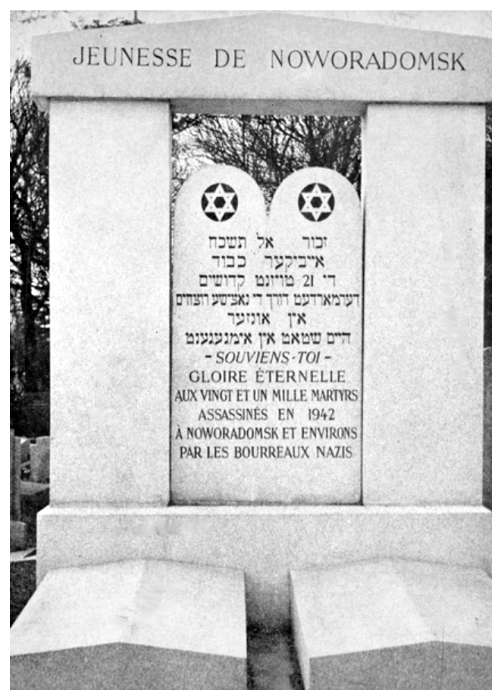 |
| The monument in Paris, erected by the
United Radomsker “Landsmanschaft”" in France, to the memory of our martyrs. |
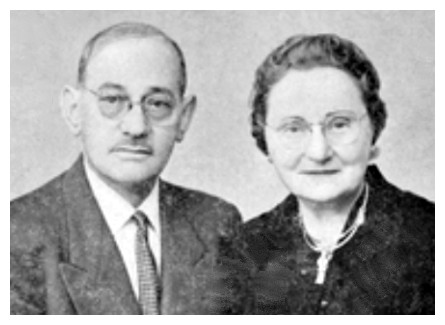
Yokheved, the wife of A. E. Dudkewicz, died in Paris on the 12th
of March 1960, as her husband read a report at a lecture given by the Society.
A. E. Dudkewicz was the cultural leader of the Society for many years and one
of its active workers in all areas.
He died in Paris a year and a half after [the death of his wife], on the 19th of November 1961, a short time after his return from a visit to Israel. He was pleasantly surprised by the trip. He brought back with him a large package of books, photographs, albums, and his own account of his impressions, and he shut himself in his apartment to prepare an exhaustive paper about Israel. During the course of this work, he said, 'After I have revised and given the paper, I can die in peace.'
He died in the middle of this work.
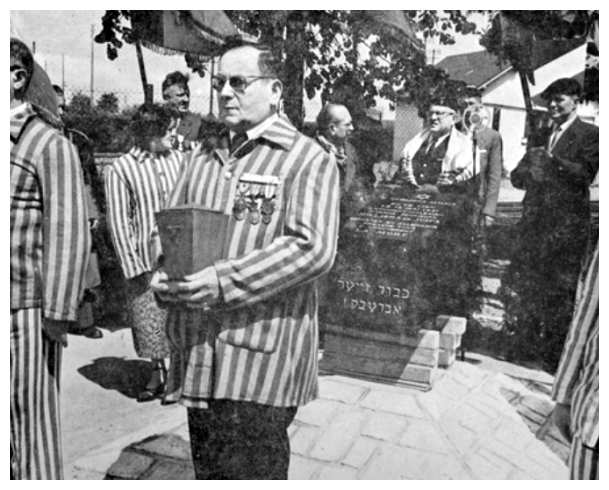 |
| Our landsman
Berl Dudkewicz, a former inmate in Auschwitz, carries a small box
of ashes from that camp,
during the ceremony of unveiling a memorial in Pithiviers (France), which served as a transfer station from which the transports were sent to the German death camps Auschwitz and Birkenau. |
by Y. Weintreter
The Landsmanshaft organization of Radomsko in Australia
was established at the beginning of 1963 in Melbourne, by landsleit
who emigrated here after the Second World War.
During the organizational meeting 14 landsleit were present, and they elected a committee of three people: Y. H. Zilberszatz – President, Y. Weintreter – Secretary, Y. Ganszerowicz – Treasurer.
The Nowo-Radomsko Center in Melbourne is occupied with many different landsmanschaftn and community problems and maintains close contact with the Organization of Former Residents of Radomsk in Israel. The Center donated its share of support for publishing this Yizkor Book and for the efforts that the landsleit in Israel have made for this sacred purpose.
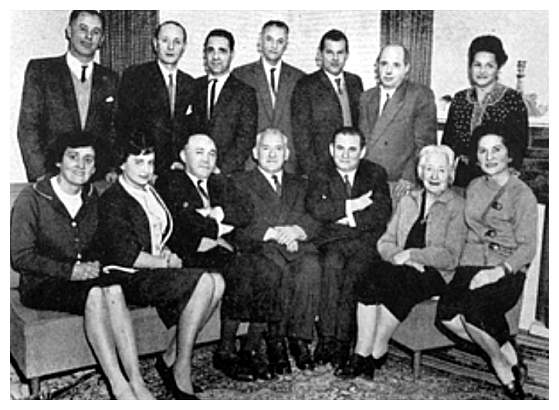 |
| During the organizational meeting of the Center in Melbourne: |
| Sitting from the right: F. Szteinlauf, F Zilberszatz, Yakubowicz, Zilberszatz,
Yakubowicz (from America) F. Szklarczik, F. Ganszerowicz
Standing from the right: F. Fajerman, Zelwer, Fajerman, Weintreter, Szklarczik,
|
|
JewishGen, Inc. makes no representations regarding the accuracy of
the translation. The reader may wish to refer to the original material
for verification.
JewishGen is not responsible for inaccuracies or omissions in the original work and cannot rewrite or edit the text to correct inaccuracies and/or omissions.
Our mission is to produce a translation of the original work and we cannot verify the accuracy of statements or alter facts cited.
 Radomsko, Poland
Radomsko, Poland
 Yizkor Book Project
Yizkor Book Project
 JewishGen Home Page
JewishGen Home Page
Copyright © 1999-2026 by JewishGen, Inc.
Updated 27 Nov 2021 by OR